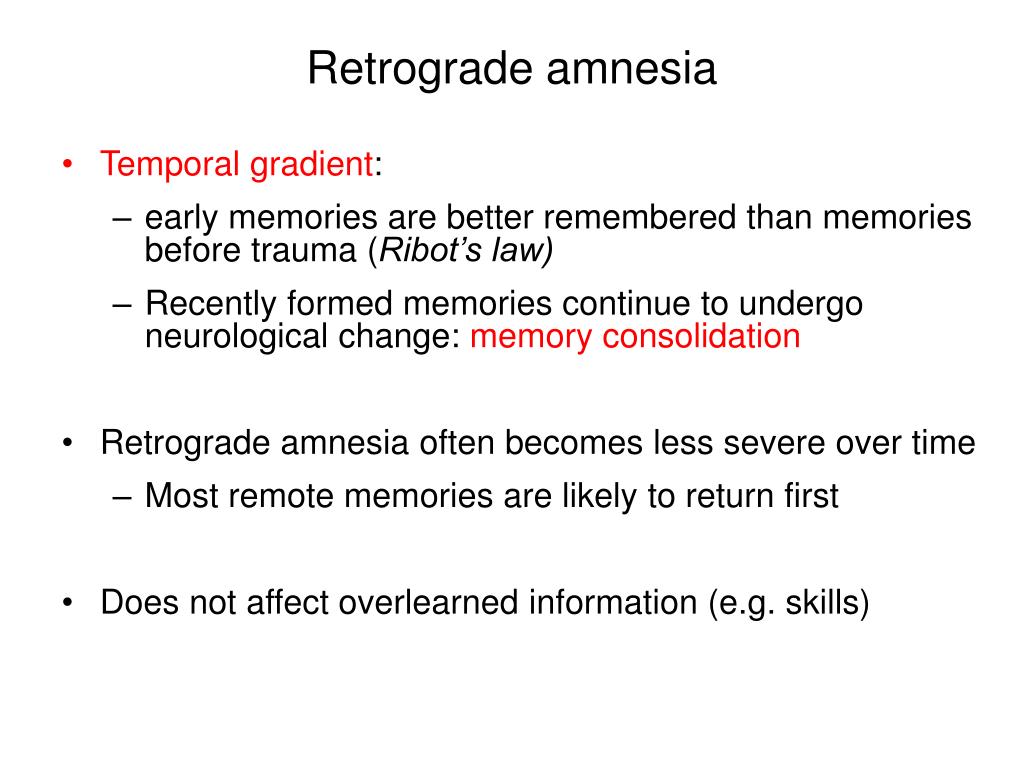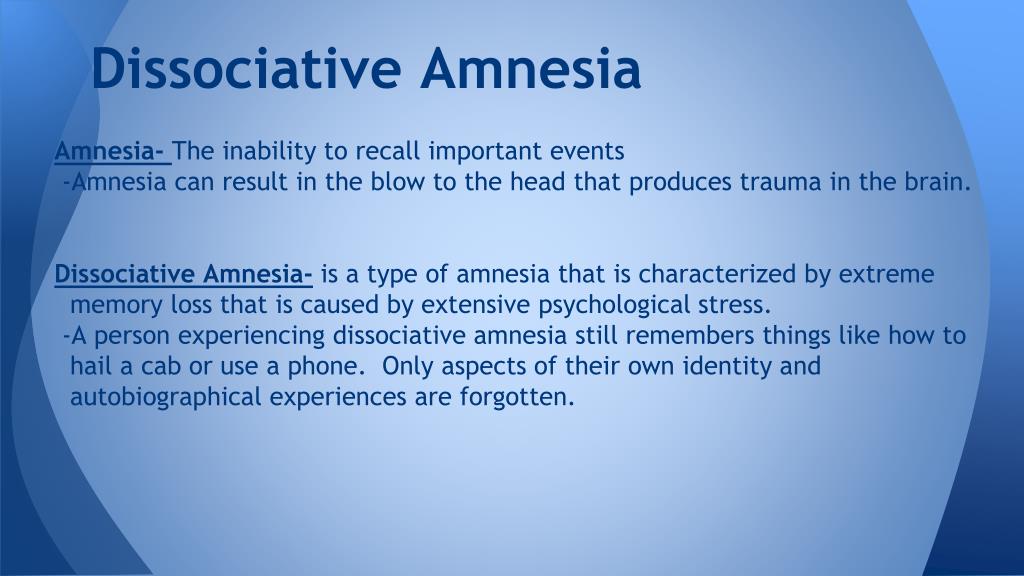

If you think you might be suffering from a stroke, seek immediate medical attention.Wearing a helmet when cycling and a seatbelt when driving.Can amnesia be prevented?Īmnesia can be prevented in some cases by making certain lifestyle choices, such as: This can be caused by emotional stress or trauma. car accidents, sports injuries)ĭissociative amnesia is psychological and can result in a temporary loss of memory of personal identity. Inflammation of the brain (due to infection, virus or cancer).Such amnesia is known as neurological amnesia and can be caused by: Memory requires many parts of the brain, and if any of these parts are damaged due to injury or disease, then memory can be affected. When the memory loss is more serious and extensive, it can lead to a deterioration in the interpersonal and work relationships of the person and antisocial behaviour. The main symptom of amnesia is the loss of access to memory.

People with amnesia may also have the following symptoms: The main symptoms of amnesia are either difficulty learning new information ( anterograde amnesia) or difficulty remembering past information and events ( retrograde amnesia). Dissociative amnesia, however, can result from emotional trauma or stress. Amnesia can result from damage to the brain through injury or illness. Amnesia can be temporary (transient global amnesia) or it can be permanent. Facts, information, and experiences can be forgotten, but generally people suffering from amnesia still know who they are. For additional information visit Linking to and Using Content from MedlinePlus.Amnesia is a disease that is characterised by memory loss. Any duplication or distribution of the information contained herein is strictly prohibited without authorization. Links to other sites are provided for information only - they do not constitute endorsements of those other sites. A licensed physician should be consulted for diagnosis and treatment of any and all medical conditions. The information provided herein should not be used during any medical emergency or for the diagnosis or treatment of any medical condition. This site complies with the HONcode standard for trustworthy health information: verify here. Learn more about A.D.A.M.'s editorial policy editorial process and privacy policy. is among the first to achieve this important distinction for online health information and services. follows rigorous standards of quality and accountability. is accredited by URAC, for Health Content Provider (URAC's accreditation program is an independent audit to verify that A.D.A.M. Low levels of important nutrients or vitamins, such as low vitamin B1 or B12Ī.D.A.M., Inc.Illness that results in the loss of, or damage to brain tissue or nerve cells, such as Parkinson disease, Huntington disease, or multiple sclerosis.ECT (electroconvulsive therapy) (most often short-term memory loss).Overuse of medicines, such as barbiturates or ( hypnotics).


Sometimes, memory loss occurs with mental health problems, such as: Hydrocephalus (fluid collection in the brain).Transient ischemic attack (TIA) or stroke.Transient global amnesia (sudden, temporary loss of memory) of unclear cause.Major surgery or severe illness, including brain surgery.Severe brain infection or infection around brain.Not enough oxygen getting to the brain when your heart or breathing is stopped for too long.Cancer treatment, such as brain radiation, bone marrow transplant, or chemotherapy.Memory loss may result from a new injury to the brain, which is caused by or is present after: A problem in any of these areas can lead to memory loss. Many areas of the brain help you create and retrieve memories. To determine a cause, your health care provider will ask if the problem came on suddenly or slowly. Memory loss can be caused by many things. Such memory loss is due to other diseases. But normal aging does not lead to dramatic memory loss. It is normal to have some trouble learning new material or needing more time to remember it. Normal aging can cause some forgetfulness.


 0 kommentar(er)
0 kommentar(er)
